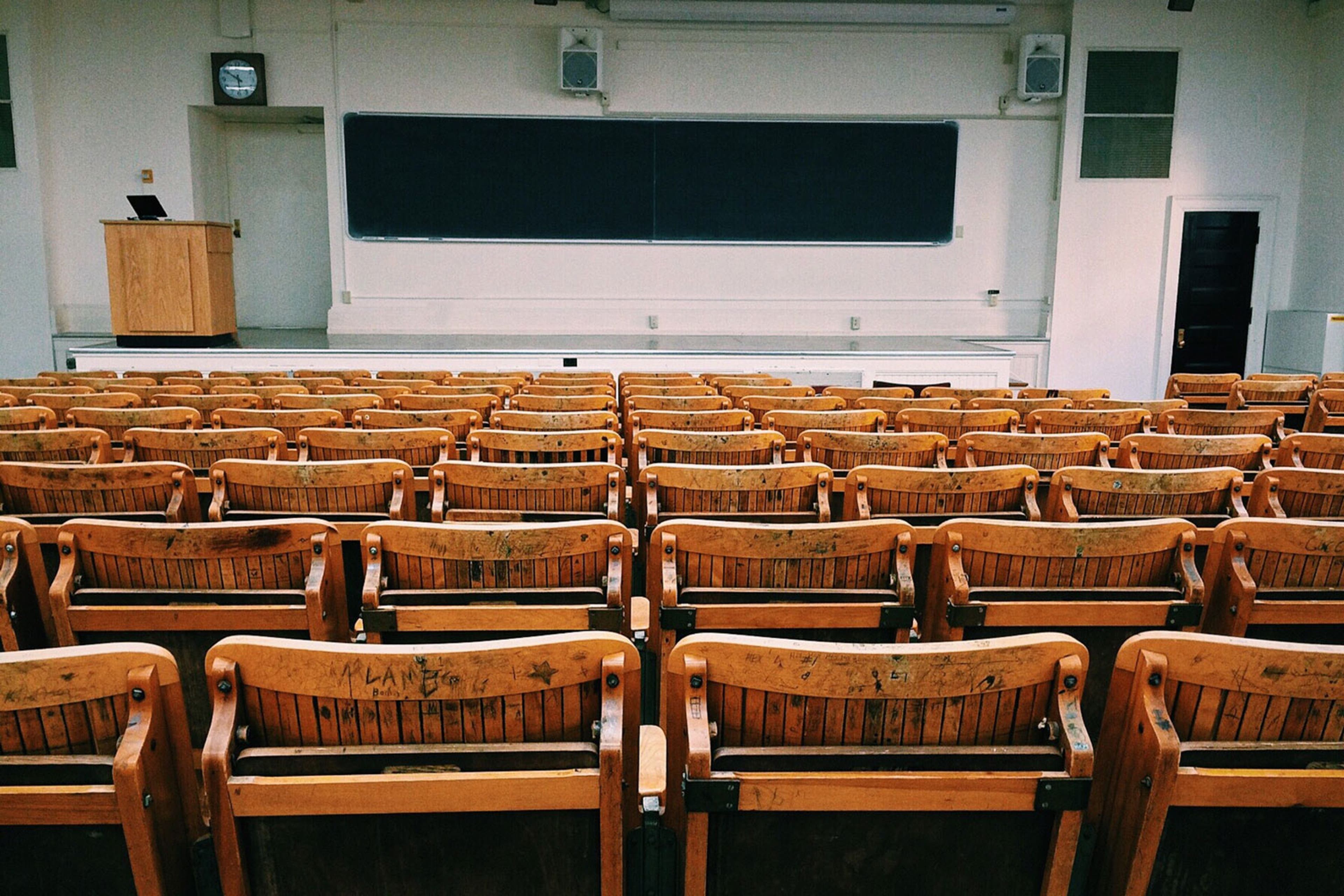At the time he started teaching his first privacy class at George Washington University Law School in 2000, Eugene L. and Barbara A. Bernard Professor of Intellectual Property and Technology Law Daniel Solove said he had to somewhat "justify" the need for privacy education. Over time, the privacy field has seen "remarkable growth," and Solove has long been "on the drumbeat for" deepening privacy education within law schools.
In late 2023, a vision he's believed in and worked towards "for decades" became a reality.
GW Law launched its new Center for Law and Technology, where Solove serves as co-director alongside Robert Brauneis, a professor of law and co-director of the school's intellectual property program. The center offers courses and concentrations in intellectual property law and privacy and technology law, delving into the legal and sociocultural ramifications of privacy, data security, artificial intelligence and digital technologies.
"At GW, I was really glad that I was teaching my class every year, but I was long thinking that there was so much more we should be doing. I wanted a full, robust curriculum on privacy just like there was for IP," said Solove, who leads the center's privacy and technology program. "To really be able to offer students a fulsome, complete education if they want to pursue a career here is something that I think we should be doing and I think the market and demand out there, the growth of laws, it all justifies that."
Solove said his privacy law class initially drew 40-50 students per academic year. Interest has grown over time. Last year he taught two privacy law classes to 150 students and this year Solove will teach three courses, each with up to 90 students.
Solove said a new course on consumer privacy gives students a "deep dive" into privacy statutes and explores various dimensions of privacy laws, from consent to individual rights to how the laws handle personal and sensitive data. The course includes recorded interviews with regulators, practitioners, advocates, academics and movers in the space — the U.S. Federal Trade Commission's Alvaro Bedoya, Irish Data Protection Commission's Helen Dixon and NOYB's Max Schrems, for example — offering students varying perspectives.
"Every week it's a different area of what is common to the privacy laws that are being enacted now — the EU General Data Protection Regulation, the California Consumer Privacy Act, various state laws," he said. "We're going to look at these consumer privacy laws and really understand how each of their component parts work and approaches to the law."
For a long time, Solove said his privacy class "was kind of a visitor in other people's houses," counting as a course credit for programs in national security or foreign relations law, for example, but students interested in a privacy focus did not have a formal place to land.
The Center for Law and Technology combines GW Law's long-established IP program with privacy and technology. A new GW Journal of Law and Technology will be launched soon, an academic fellowship in privacy and technology law is being created for aspiring legal scholars, and the privacy and technology program is offering a Juris Doctor concentration in privacy, data security and technology law.
The concentration enables students who take up to 12 credits in privacy law and cybersecurity, and write a paper on related issues, to receive a special designation on their transcript. Solove said currently 20-30 courses qualify for the concentration.
"When I announced it to my privacy class, the class erupted in applause," Solove said. "So, I think that's going to be a very popular addition so that students can say I did more than just one course, I can really show I take this area seriously and I've done a lot."
The center's launch follows the addition of three new full-time faculty members in privacy and technology law with focuses in areas including platform governance, Section 230, AI, disruptive technologies and privacy, and cybersecurity. They join affiliated faculty and adjunct faculty members who come from the Washington, D.C. legal community, including several current and former government officials, Solove said.
As privacy laws emerge and begin taking effect, Solove anticipates a ramping up of enforcement and continuing demand in the field of privacy law will lead to opportunities for students looking to enter the field. He said some students come to the program with an interest in related issues they hear about or encounter in their daily lives — like surveillance and data breaches— while others know privacy is a field they want to make a career out of. And he's seeing more of both.
"I think we're going to see quite a lot of activity and that's going to drive business more. I definitely think there's a lot of opportunity," he said.
While laws are emerging and privacy is in the news more and more, Solove also noted today's students are digital natives born into a world of technology and much of their interest comes from what they know.
"This is not something that's new to them. It's something they've been living with for a very long time," he said. "Technology isn't an interesting side issue. It's front and center of their world at this point."
He called on the privacy community to help support these students as they enter the workforce, such as through fellowships, and said he wants employers to know they are "working very hard to try to produce students who are well educated in these issues and who have a deep understanding of the laws so that they can hit the ground running."
"Privacy does require a specialized body of knowledge and it's something you can't just walk in off the street and suddenly do. You need, I think, a pretty robust education and that's something I want to offer," he said. "Also, it's a great opportunity. I think there's going to be more demand for expertise in these areas as companies see the importance of this."

